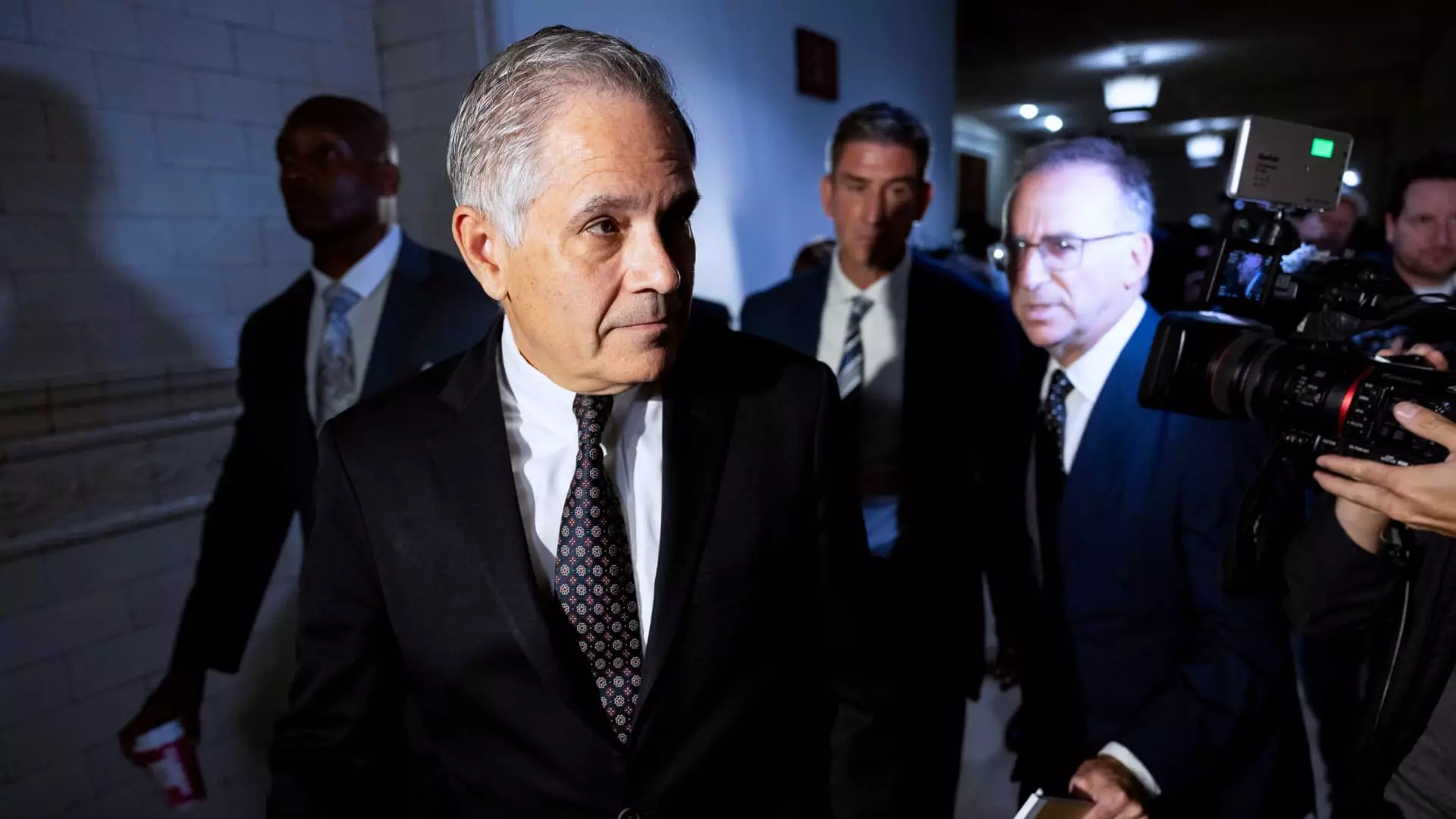In a swirling nexus of politics, technology, and law, the ongoing dispute surrounding Elon Musk’s political action committee, America PAC, has ignited a flame of debate challenging both the ethics of political fundraising and the implications of corporate involvement in electoral processes. The recent testimony of Philadelphia District Attorney Larry Krasner brings to the forefront serious allegations concerning the legality and ethics behind a $1 million lottery being distributed to registered voters in critical swing states. As we examine the details, it becomes evident that this controversy is steeped in layers of complexity, raising questions about the integrity of political contributions amidst strategic electoral maneuvers.
Larry Krasner’s testimony poses significant accusations against Musk and America PAC, alleging that they knowingly operate an illegal lottery under Pennsylvania law. The implications of this statement are profound, suggesting an intentional disregard for legal regulations that govern electoral conduct. Krasner’s assertion of “guilty knowledge” indicates not only potential legal repercussions but also a moral obligation that parties in a democratic society must uphold. By framing the giveaway as a “scam” or “grift,” Krasner underscores a critical principle: the protection of voters from manipulative tactics disguised as legitimate political engagement.
Moreover, the DA dismissed any assumptions that his Democratic affiliation influenced his decision to challenge Musk and the PAC. This refusal to succumb to potential partisan allegations reinforces the message that such legal actions are rooted in the principle of fairness rather than political gain. His willingness to pursue legal action against a billionaire, despite personal admiration for Tesla, adds an intriguing layer to the narrative and illustrates a commitment to uphold the law irrespective of personal feelings.
The Counterargument: Defending the PAC’s Actions
In stark contrast, Chris Gober, the former treasurer of America PAC, contends that Krasner’s lawsuit seeks to infringe upon First Amendment rights, fundamentally misconstruing the nature of their fundraising strategy. According to Gober, the giveaway is not an actual lottery but rather an incentive for contracting individuals to advocate for the PAC by signing petitions. This argument hinges on the notion that the use of the word “random” must be interpreted in a flexible manner, hinting at an operational strategy rather than an act of capriciousness.
However, Gober’s characterization of the circumstances poses its own ethical dilemmas. The idea that the PAC can artfully construct a scenario that circumvents legal definitions of an illegal lottery raises questions regarding transparency and accountability in fundraising efforts. Such tactics potentially erode public trust in the electoral system, suggesting that companies with substantial financial resources can manipulate laws to achieve their political aims.
This controversy prompts a larger conversation about the ethical obligations tied to political fundraising. While Gober argues about contractual agreements being at the core of their actions, Krasner champions the need to uphold electoral integrity. This tension illustrates a fundamental divide in how political engagement is viewed in American society: Is it a realm where innovative strategies can be employed, or one that necessitates strict adherence to the tenets of law and ethics?
The impact of corporate influence on democratic processes is a persisting concern, particularly when entangled with substantial financial incentives. The lottery motif employed by America PAC may or may not illicitly influence voter behavior, but the perception of impropriety alone challenges the facade of democratic fairness. As Krasner aptly stated, “There is no First Amendment right to commit crimes,” underscoring the sentiment that constitutional freedoms do not offer a blanket permission to engage in practices that might negatively impact electoral integrity.
The ongoing debate surrounding America PAC’s fundraising strategies serves as a bellwether for the broader conversation on ethical obligations within the realm of political fundraising. As this legal battle unfolds in the courts, it becomes increasingly apparent that the underlying issues transcending the case are emblematic of larger ideological struggles faced by the American political framework. Ultimately, the crux of the matter lies in striking a balance between the exercise of free speech and the imperative to maintain the sanctity and fairness of the electoral process. The outcome of this case could potentially establish new precedents regarding the intersection of legality and morality in the politically charged arena of America’s electoral systems.

Leave a Reply